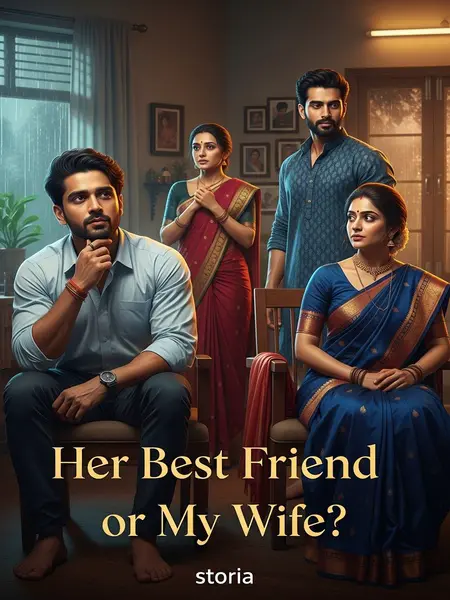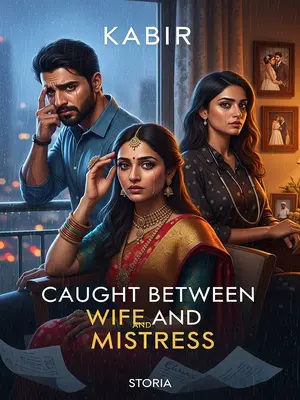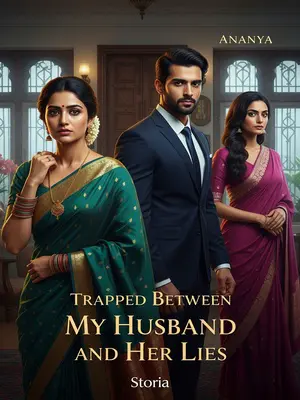Chapter 1: Kabir and Meera
Before anything else, the aroma of cardamom chai drifted from the kitchen, mixing with the faint sound of a dholak being played at the neighbour's house. I paused in the hallway, catching the echo of Meera's laughter bubbling through her phone, her voice bright with the kind of happiness she rarely showed me anymore. For a moment, the world outside our window—the busy lanes, the cries of the sabziwala—felt very far away.
You know how it is in India: everyone has that one friend from their mohalla or colony, the one who’s seen you grow up in chappals and oiled hair, who knows all your family secrets and has been there for every Diwali and Holi. For Meera, that friend is Kabir. Their bond is so deep, it's as if nothing else matters when they're together—like the rest of us fade into the background.
Their comfort with each other is so complete, they don’t even think in terms of 'ladka-ladki.' They could share a mattress on the floor during a family wedding, fighting over who gets the side near the cooler, and nobody would even raise an eyebrow.
It’s the kind of closeness you see in those old black-and-white Hindi films, but it’s happening right here in my own home. Sometimes, when Meera talks about Kabir, she forgets I’m even listening—her words flow out as naturally as if she’s still that carefree girl in Lucknow.
I’ve tried again and again to talk to them about boundaries, to ask for a little distance.
Like any typical Indian husband, I’ve tried every trick—dropping pointed hints during chai, making faces at dinner, even bringing it up directly during a family get-together. But they just laugh, acting like I’m overreacting or making a fuss for nothing.
Whenever I bring it up, Meera gets defensive. She bites her lip, blinks back her irritation, then snaps, “Kabir and I have been friends for twenty years. If something was meant to happen, it would have happened long before you came along. Would it even be your turn?”
She folds her arms, eyes rolling with that familiar UP flair, her lips twisted into a sarcastic grin—leaving me speechless in front of everyone.
And then she just does as she pleases, going out late with Kabir, even staying out overnight.
Even when I sulked or rattled utensils in the kitchen, she’d just shrug, tossing her hair like some serial heroine. She’d giggle, text Kabir to come pick her up, and leave me behind with the TV playing old Govinda songs, the agarbatti burning in the corner.
Even my in-laws treat Kabir like a second son, telling me to be more modern and open-minded.
At family lunches, Kabir always gets the first piece of mithai, with my mother-in-law fussing over him, adjusting her pallu as she says, “Beta, aur paneer lo!” The way they call me ‘beta’ too, but with Kabir it’s different—a warmth that doesn’t reach me. They’d even say, “Arjun, hamare zamane mein toh ladka-ladki dosti mein kuch nahi tha, bas dosti samjho!”
Eventually, I found myself a little sister.
Tired of feeling like a guest in my own marriage, I found comfort at work with Sneha. She was like the cousin you look out for at weddings—always smiling, calling me ‘bhaiya’ in front of everyone. Simple, sweet, and without any drama. Maybe I just needed someone to balance things out.
But Meera noticed, and one day, she cornered me: “What’s going on between you and Sneha? Don’t you two know how to keep proper boundaries?”
One evening, after work, Meera caught me and Sneha having chai at a roadside tapri. The moment we walked back together, Meera’s eyes narrowed, her voice sharp as a papad: “Arjun, kya chal raha hai? Office ki dosti samajh aata hai, par har roz? Log kya kahenge?”
I threw her own words back at her: “I’ve worked with Sneha for three years. If anything was going to happen, it would have happened ages ago. Would it even be your turn?”
That day, her face flushed with anger, a stunned silence stretching between us—like the air before a monsoon storm. But inside me, something settled, quiet and heavy, like the first drop of rain on dry earth.













